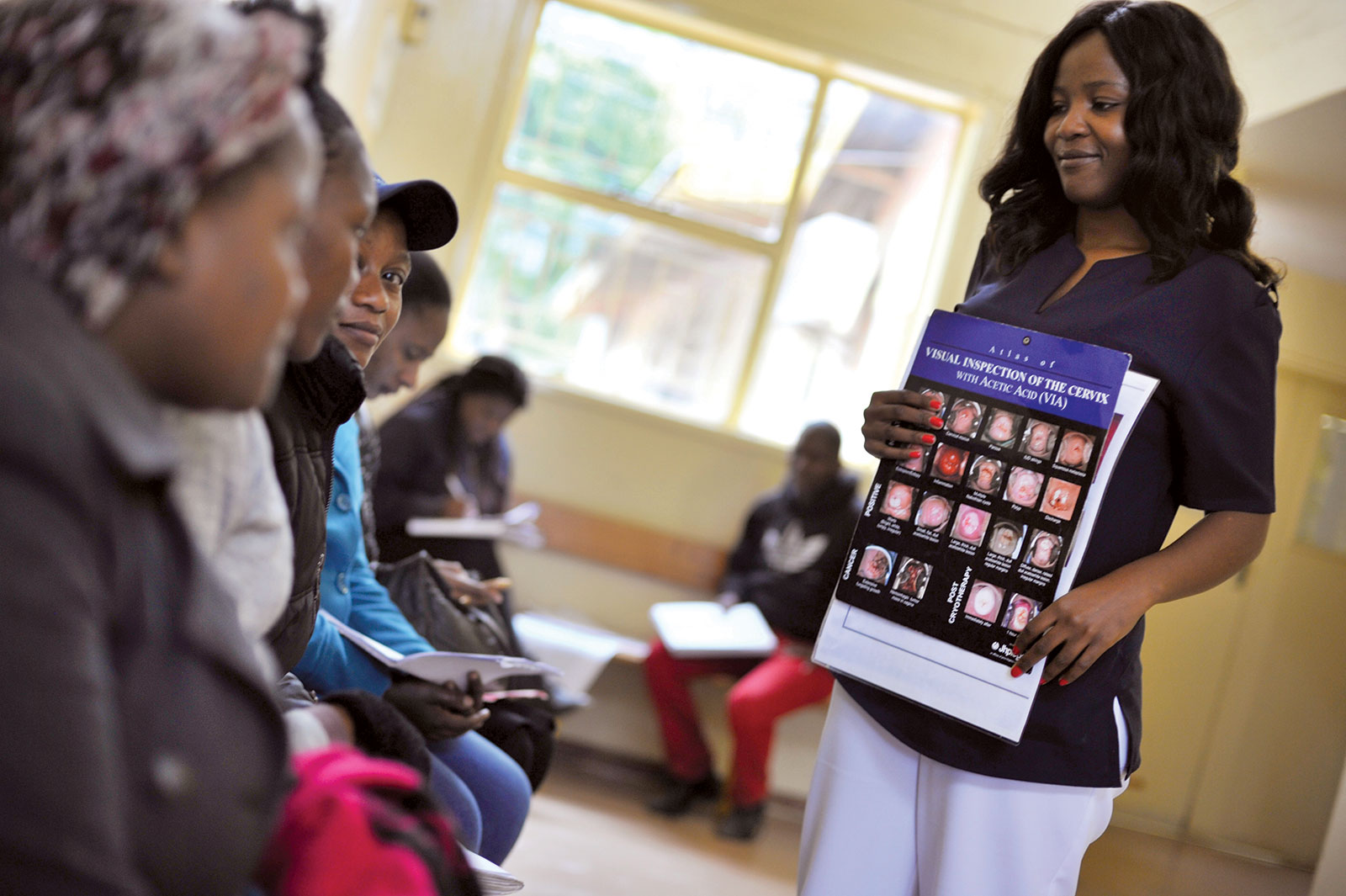secure the future
A Simple Text Message Has Empowered Women
In the small village of Pasiasi, in a remote region of Tanzania, mobile technology is helping to save lives. Awareness of cervical cancer is increasing thanks to the Bristol-Myers Squibb Foundation's Secure The Future program funding for an innovative Cervical Cancer Helpline incorporating text messaging and other mobile phone-based outreach programs. The approach was developed by Tanzania Youth Alliance (TAYOA), a nonprofit organization, in cooperation with Pink Ribbon Red Ribbon (PRRR), a global public-private partnership working to raise awareness and increase access to cervical and breast cancer education, screening and treatment for women in Southern and East Africa.
The Bristol-Myers Squibb Foundation is partnering with PRRR, ministries of health, academic institutions and non-profit organizations in Southern Africa to raise awareness and screening of cervical and breast cancers. This new initiative is an expansion of the successful Secure The Future program, working for over 17 years to fight HIV/AIDS in sub-Saharan Africa. Since HIV-positive women are five times more likely to develop cervical cancer than non-infected peers, the focus on cancer was a logical next step for the program. Although cervical cancer is the most common cancer among women in sub-Saharan Africa with 80,000 new cases and more than 50,000 deaths each year, there is a lack of information about both the disease and access to screening and treatment.
Before TAYOA’s program began, Happiness Modesti says cervical cancer was never discussed in Pasiasi, her village. “I am not even sure if the services were there because we never talked about it,” Happiness says. “But now, we feel we are lucky because TAYOA has come to us. Everyone has heard about it, we all talk about it and many women here have gone for cervical cancer screenings.”
Building upon a helpline call center with trained counselors providing information, screening and treatment referrals, the program added text messaging designed and tested to ensure user comprehension and an interactive voice response system which allows callers to receive basic cervical cancer information 24 hours a day. Roughly 80 percent of the population in Tanzania owns a mobile phone so TAYOA can successfully contact at-risk populations, especially those in difficult to reach rural communities.
In just over a year since its launch, the program has generated more than 60,000 calls to the helpline. Most importantly nearly 2,000 women have had a cancer screening as a result of receiving one of the program’s text messages.
Happiness is one of them.
“I have peace of mind now because I have been screened for pre-cervical cancer lesions and I know my status for HIV,” Happiness says, and that frees her from worry and allows her to focus on caring for her HIV-positive daughter and her other five children.

Nurse Alexandra Seiphetiheng (above right) talks to women about the cervical cancer screening process at the Bontleng Health Clinic in Gaborone, Botswana.